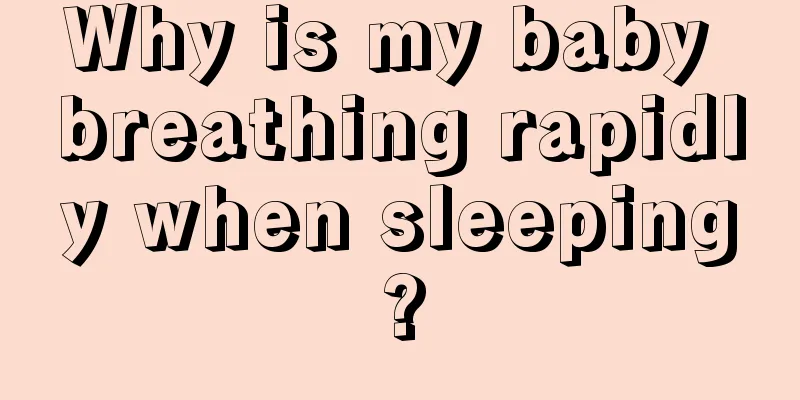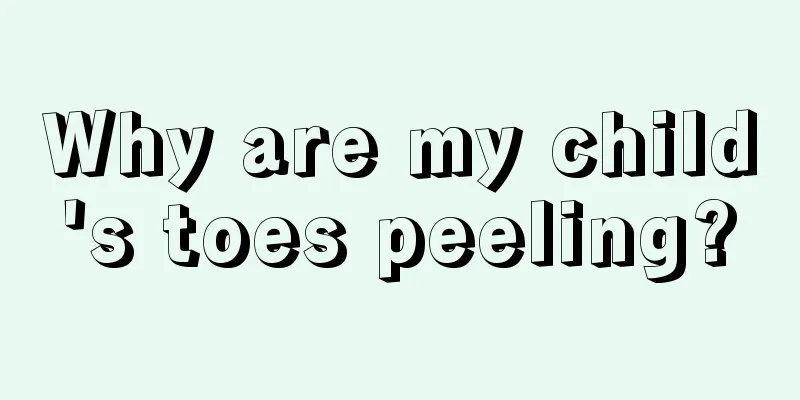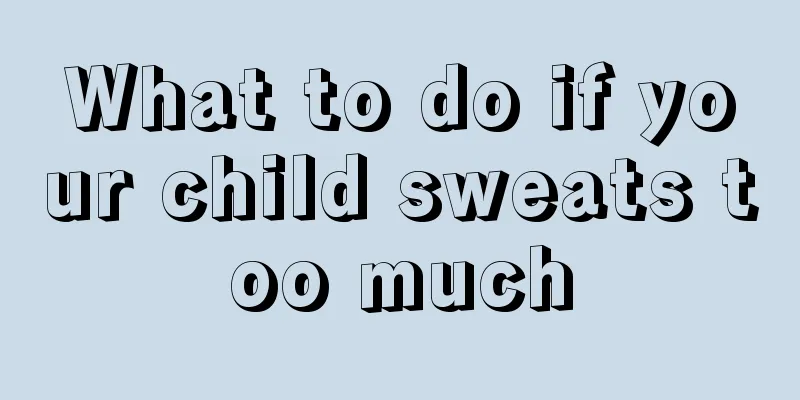Why is my baby breathing rapidly when sleeping?

|
The baby's every move can make the parents nervous. Since the baby was born, the whole family's energy has been mainly focused on the baby, for fear that the baby will encounter some bumps and stumbles. However, babies are indeed very fragile and need careful care from their parents. For example, the phenomenon of babies breathing rapidly when sleeping is something that parents are very worried about. So, what is the reason for babies breathing rapidly when sleeping? Babies' breathing and heartbeats are faster than adults', so there is no need to worry. Pay attention to your baby's sleeping position when he is sleeping. Also, don't cover him too thickly for fear that he will feel cold and have difficulty breathing. If you have been short of breath, you need to rule out respiratory disease. Such as rhinitis, tracheal stenosis, etc. Children like to sleep with their backs tilted upwards, mainly to keep their airways open. Children have vigorous physiological metabolism, and their oxygen demand calculated based on body surface area is close to that of adults. Children can generally only meet the body's needs by increasing the number of breaths. The younger they are, the higher their breathing rate. A normal newborn breathes 40 to 44 times per minute; for children under 1 year old, it is 30 times; for children between 1 and 3 years old, it is about 24 times per minute. To observe the number of breathing times, it must be done in a quiet or sleeping state to be accurate. An increased respiratory rate is a characteristic sign of pneumonia in infants and children under 3 years of age. In mild pneumonia, the child coughs, becomes short of breath, and has a faster respiratory rate. For children under 2 months old, the respiratory rate is more than 50 times per minute, for children aged 2 to 12 months, the respiratory rate is 40 to 50 times per minute, and for children over one year old, the respiratory rate is greater than 40 times per minute. In severe pneumonia, the heart rate is more than 60 times per minute for children under 2 months old, greater than or equal to 50 times per minute for children between 2 and 12 months old, and greater than or equal to 40 times per minute for children over one year old. From the above introduction, we can conclude that the primary reason for the baby's rapid breathing when sleeping is the baby's faster metabolism, coupled with the baby's incorrect sleeping posture. Parents do not need to worry too much about the baby's problems. When the baby is sleeping soundly, they should carefully observe the baby's movements and judge the baby's physical condition from the baby's sleeping position. |
<<: How to control baby's sleeping time
>>: What to do if your baby coughs and has a hoarse voice
Recommend
Can young children drink monk fruit water?
The healthy growth of infants and young children ...
CPR for children
We may have seen many children suffering from neo...
Children with autism have many obstacles in their performance!
Autism can be said to be a mental illness, and in...
What medicine should children take for gastrointestinal cold
Gastrointestinal cold in children is a type of pe...
Symptoms of childhood rash
Because we all know that sometimes some diseases ...
White spots on children
Many diseases begin to appear in childhood, and p...
How many naps does a 10-month-old baby take during the day?
Newborns tend to sleep for long periods of time. ...
What's wrong with a two-month-old baby who doesn't poop?
Because each mother raises her baby in a differen...
What does fetal renal pelvis separation mean?
Renal pelvis separation usually occurs when kidne...
What to do if there is whiteness in the baby's mouth
There are many oral problems. The most common ora...
Why is the lymphocyte count in newborns high?
The lymphatic system is one of the most important...
Newborn breast milk watery stool
Most newborns will choose to eat their mother'...
How to quickly reduce baby's fever without taking medicine or injections
There are actually many treatments for baby's...
What to do if your baby keeps catching a cold
Whether it is an adult or a child, it is very eas...
How to supplement children's iron deficiency anemia?
Iron deficiency anemia is also a very common dise...









